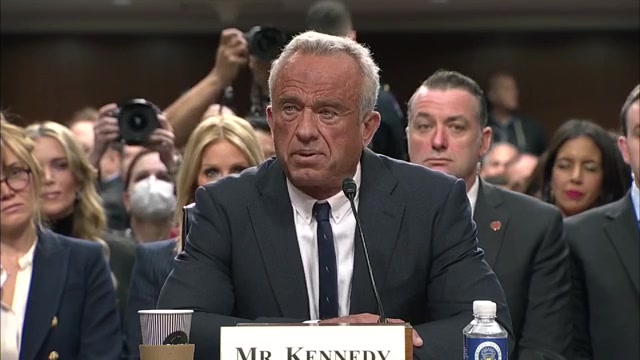CDC Fluoride Recommendations Under Review Following Kennedy’s Announcements
In a significant move regarding public health policy, U.S. Health Secretary Robert F. Kennedy Jr. announced plans to direct the Centers for Disease Control and Prevention (CDC) to reconsider its recommendations on water fluoridation. This announcement came during a news conference in Salt Lake City, where Kennedy outlined his intentions to form a task force dedicated to examining the implications of fluoride use in drinking water.
EPA’s Involvement and Scientific Review
On the same day, the U.S. Environmental Protection Agency (EPA) revealed it is currently evaluating new scientific data concerning the health risks associated with fluoride in drinking water. The EPA is responsible for establishing the maximum allowable levels of fluoride in public water systems, which currently stands at 4 milligrams per liter.
Utah Takes a Bold Step
Utah recently made headlines by becoming the first state to entirely ban the addition of fluoride in public drinking water. Governor Spencer Cox signed legislation that prevents local governments from deciding whether to include fluoride, with a deadline set for May 7 for all systems to cease fluoridation. This legislative move has faced significant opposition from dental professionals and national health organizations, warning that removing fluoride will likely exacerbate dental health issues, particularly among low-income populations.
Kennedy’s Support and Controversial Statements
During the Salt Lake City event, Kennedy praised Utah for its landmark decision and described the state as a leader in promoting public health. “I’m very, very proud of this state for being the first state to ban it, and I hope many more will,” he stated. Kennedy’s position on fluoride, which he refers to as a “dangerous neurotoxin,” has stirred controversy given the historical endorsement of water fluoridation, which began in the 1950s as a key method to combat tooth decay.
Review of Scientific Evidence
EPA Administrator Lee Zeldin indicated that the renewed examination of fluoride in water is important to assess its effects and to potentially inform future safety standards. “When this evaluation is completed, we will have an updated foundational scientific evaluation that will inform the agency’s future steps,” said Zeldin. This initiative follows concerns raised by various studies linking excessive fluoride exposure to health issues.
Concerns from Health Advocates
Experts, including those from the Utah Oral Health Coalition, have voiced concerns over the potential fallout of the fluoride ban, anticipating an increase in cavities among children in the state. Chairperson Lorna Koci articulated her fears that the misinformation surrounding fluoride’s effectiveness had swayed public opinion, potentially harming the health of vulnerable populations.
Historical Context and Current Usage of Fluoride
With approximately two-thirds of Americans relying on fluoridated water—an arrangement regarded as one of the major public health achievements of the last century—the current debate is rooted in both health implications and community autonomy. According to the CDC, around one-third of community water systems, totaling 17,000 nationwide, continue to fluoridate their drinking water, adhering to CDC recommendations of 0.7 milligrams per liter.
Next Steps
As local and state governments navigate the implications of fluoride use, the forthcoming reviews by the CDC and EPA could lead to extensive changes in public health policies regarding fluoridation. Stakeholders from both sides of the debate anticipate that these decisions will have lasting impacts on oral health, with a particular focus on protecting lower-income communities who may face greater risks should preventive measures like fluoridation be curtailed.

